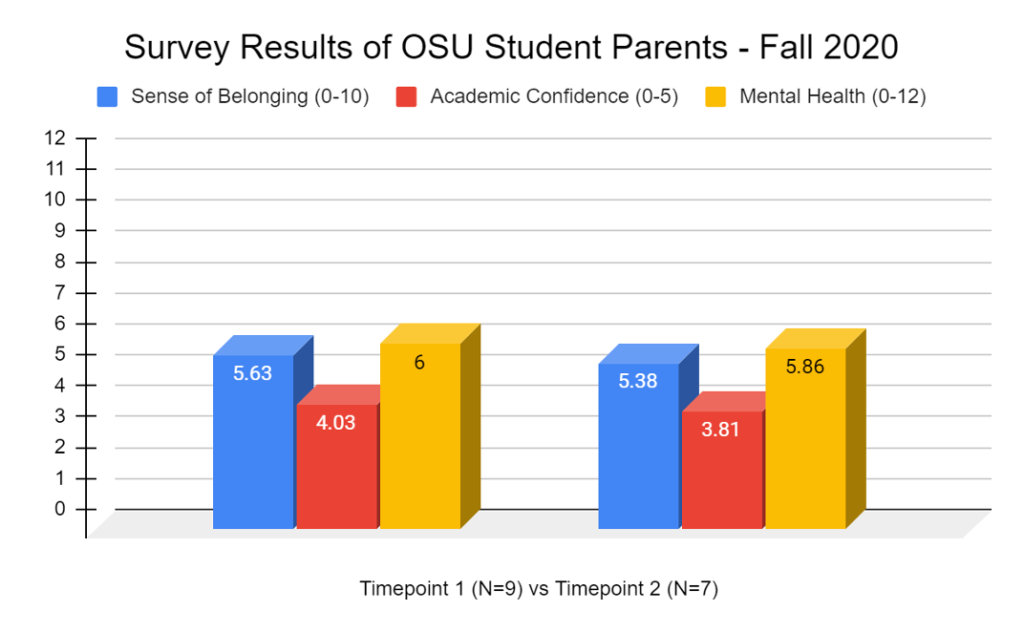CRANE RESEARCH FORUM RECAP: Understanding the Campus Climate for Parenting Students
February 2021
written by Janelle Williamson
The February Crane Research Forum hosted our director of research Dr. Mitsu Narui and program assistant, DeVaughn Croxton. The duo shared research findings related to the attitudes, behaviors, and policies of a campus (“campus climate”) for parenting students. College students who are parents are a rapidly growing population that makes up a quarter of the undergraduate population in the United States. Parenting students are disproportionately from communities of color and women and are, on the whole, at greater risk of not matriculating. The study presented seeks to understand the experiences and challenges that parenting students face through the lens of campus climate – defined as the attitudes, behaviors, and standards/practices that concern the access for, inclusion of, and level of respect for individual and group needs, abilities, and potential.
Key Highlights
- The study collected both quantitative and qualitative (focus group) data from 21 Child Care Access Means Parents In School (CCAMPIS) participants (11 undergraduate, 10 graduate, 18 women and 3 men). CCAMPIS is a program authorized by the Higher Education Act and administered by the U.S. Department of Education. The program supports the participation of parents from low-income households in postsecondary education through the provision of quality licensed, nationally accredited, campus or community child care services for children 6 weeks to 12 years old.
- A survey was given to participants across two time points during the 2020 fall semester. Results showed that student parents had a low sense of belonging and mental health score. Results also showed that academic confidence declined throughout the semester, perhaps in part due to the COVID-19 pandemic conditions.

Focus group data collection revealed parenting students’ perspectives on campus climate:
- Intergroup and intragroup relations
- “I’ve noticed that like people will talk differently to you after they find out that you’re a parent. I feel like, the fact that they give me an excuse because I’m a mom, they think that it’s some sort of disability to have children… Just to see how other people view it as such a negative thing, it frustrates me.
- University Policies and Services
- “A lot of the buildings are not accessible. [They are] not wheelchair accessible so that also means a stroller, carrying it upstairs.”
- “It would be nice to have a child care center that was primarily for students where you didn’t have to fight with faculty and staff to get a slot.”
- Curriculum and Pedagogy
- “I send an email to my professors at the start of the semester to let them know about the situation. I put everything up front. Usually they are accommodating or understanding, there is usually one professor who just doesn’t understand or doesn’t try to work with you. You think that they would be more lenient this semester because of COVID. They are assigning just as much work if not more.”
- Access and Retention
- Students shared the need for student housing reserved for parenting students, child-friendly parks on campus, and affordable, drop-in child care.
Action Steps
- Policy makers should consider the holistic and unique needs of parenting students
- Researchers should examine efficacy of supports for parenting students
- Higher education administrators should improve campus spaces, reduce stigma, help parenting students connect, and provide training to faculty/staff
Learn more about Crane’s work on the parenting student experience
- Visit our CCAMPIS web page
- Read the white paper
- Watch an interview with DeVaughn Croxton
- Read DeVaughn’s blog post
The study at hand uses data from the Child Care Access Means Parents In School (CCAMPIS) program run in partnership with Ohio State’s Office of Diversity and Inclusion ACCESS Collaborative.

